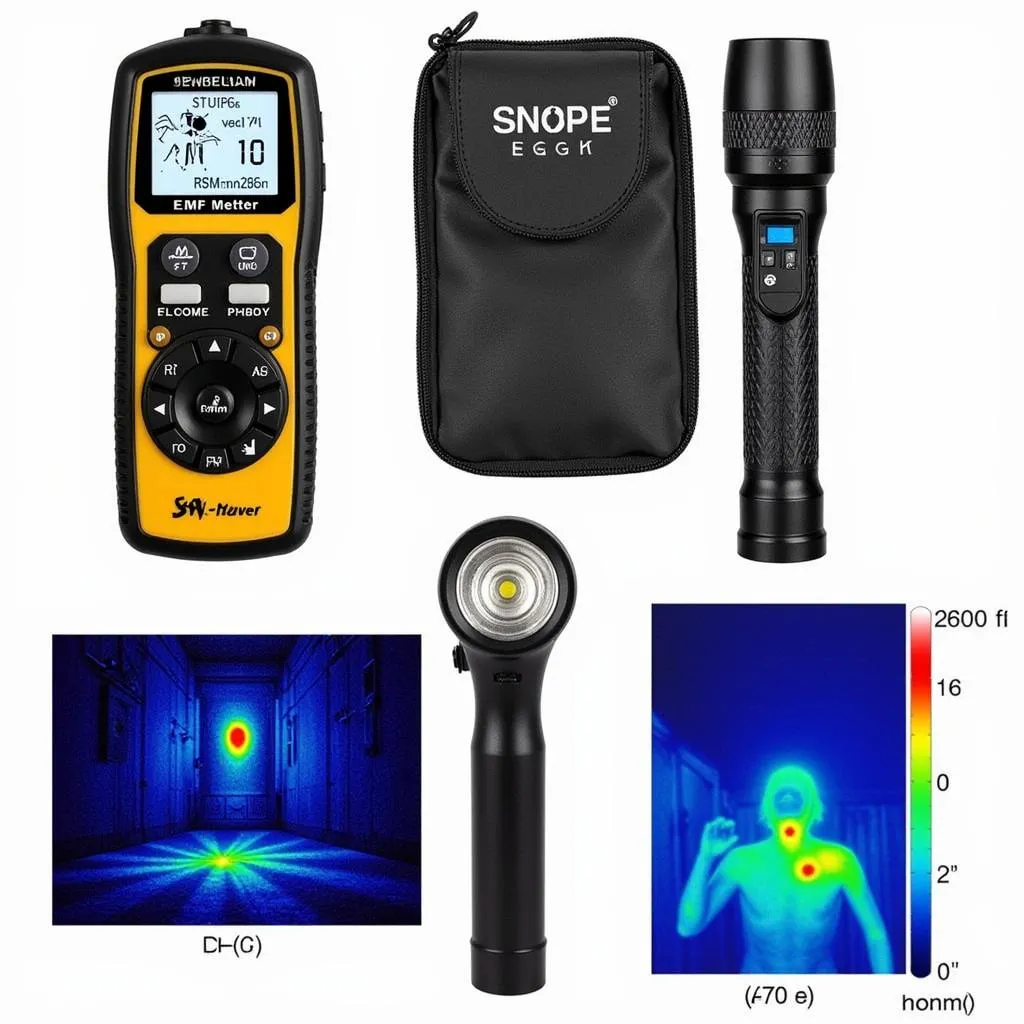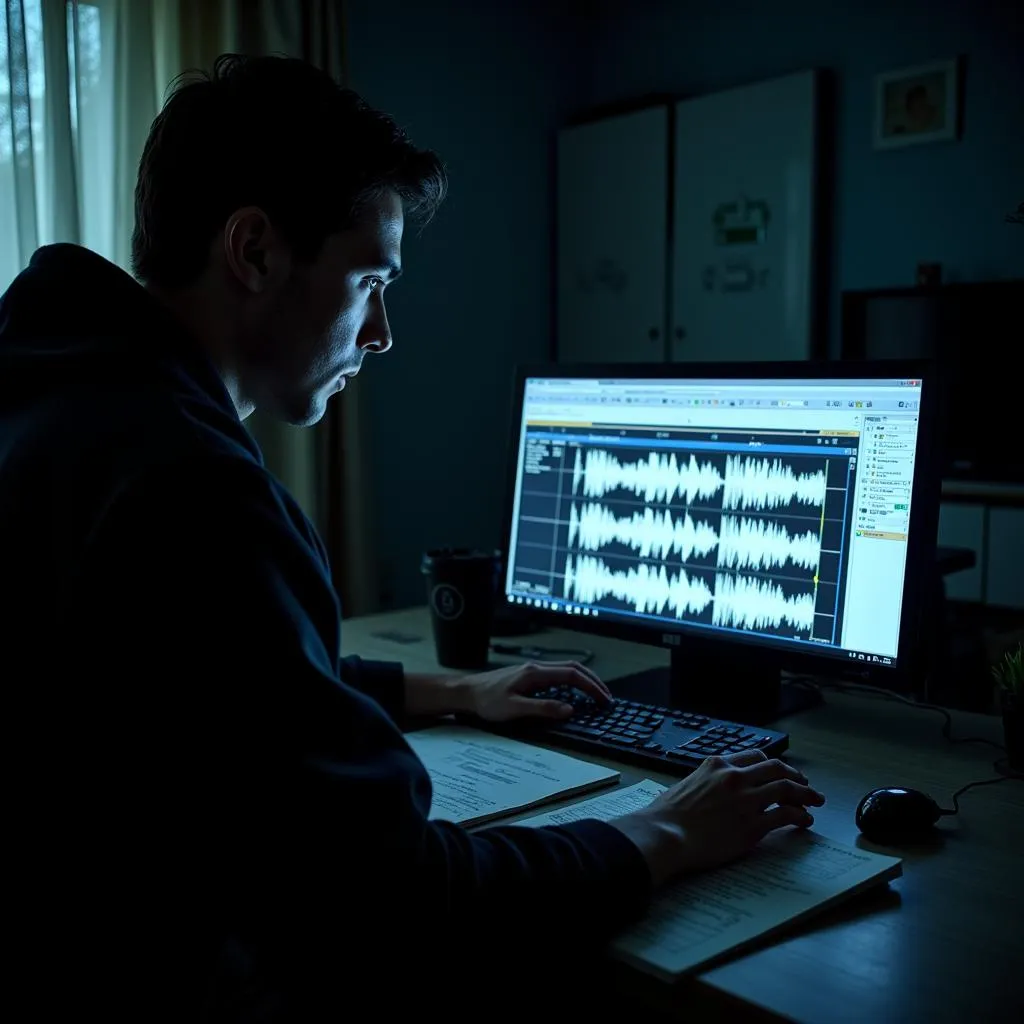The unknown has always captivated humankind, driving us to seek answers beyond the veil of our perceived reality. In the enigmatic realm of paranormal investigation, the “Research Process Definition” forms the bedrock upon which we build our understanding. It’s not about jumping to conclusions fueled by fear or fantasy; it’s about employing a systematic and meticulous approach to unraveling the threads of unusual phenomena.
 Essential Tools for Paranormal Research
Essential Tools for Paranormal Research
The Foundation of Paranormal Research
The research process, at its core, is a structured way of investigating a question or phenomenon. It’s about moving from speculation to informed possibilities, and in the field of paranormal research, this is paramount. Whether we’re exploring haunted locales, analyzing accounts of extra-sensory perception, or delving into the world of cryptozoology, a rigorous research process lends credibility to our findings.
Defining the Anomaly: Research Objectives
Just like a detective meticulously examines a crime scene, paranormal investigators must first define the scope of their research. What are we trying to understand? Is it an alleged haunting, a reported UFO sighting, or perhaps an instance of unexplained phenomena within a specific location? Clearly defining the research objective helps to narrow our focus and streamline the investigation.
Gathering the Threads: Data Collection Methods
The heart of any research process lies in the collection of data. In paranormal research, this involves a multi-faceted approach, drawing upon a variety of sources:
- Witness Testimonies: Eyewitness accounts, while subjective, form a crucial part of initial data gathering. Interviewing individuals who claim to have experienced paranormal activity provides valuable insights and potential leads for further investigation.
- Historical Research: Many paranormal investigations involve locations or events with a rich history. Delving into historical records, local folklore, and previous investigations can uncover patterns or contextual information that sheds light on current events.
- On-Site Investigation: This is where the “hands-on” aspect of paranormal research comes into play. Using a combination of scientific instruments and observational techniques, investigators attempt to document any unusual occurrences within the environment.
- Experimental Research: While challenging, conducting controlled experiments can help to isolate variables and test specific hypotheses related to paranormal phenomena.
 Paranormal Investigator Reviewing Evidence
Paranormal Investigator Reviewing Evidence
Analyzing the Evidence: Separating Fact from Fiction
Once data has been collected, the critical task of analysis begins. This stage of the research process is where investigators separate genuine anomalies from explainable occurrences, hoaxes, or misinterpretations. It requires a blend of objectivity, skepticism, and an open mind.
The Importance of Critical Thinking
The very nature of paranormal research necessitates a healthy dose of skepticism. While we remain open to the possibilities, it’s essential to approach evidence with a critical eye, seeking logical explanations before attributing events to the paranormal:
- Could environmental factors explain the experience?
- Are there any psychological factors at play?
- Is there a possibility of fraud or misinterpretation?
By rigorously examining the evidence and considering alternative explanations, we can strengthen the validity of our conclusions.
Drawing Informed Conclusions: The Research Report
The culmination of the research process is the creation of a comprehensive report. This document details the research objectives, methodologies used, data collected, analysis conducted, and ultimately, the conclusions drawn.
Transparency and Ethics
Transparency is key in paranormal research. A thorough report should clearly outline the limitations of the investigation, acknowledge any unanswered questions, and refrain from making definitive claims without sufficient evidence.
The Ongoing Pursuit of Understanding
It’s important to note that the research process in paranormal investigation is rarely linear. New evidence or insights can emerge, prompting a revisiting of previous conclusions or leading the investigation down new paths. This iterative process of inquiry and exploration is what drives our understanding of the unknown.
If you’re seeking answers within the realm of the paranormal, remember that the journey begins with a solid research process. By approaching the unknown with a blend of curiosity, skepticism, and a commitment to rigorous investigation, we inch closer to unraveling the mysteries that lie beyond the veil.
FAQs About Paranormal Research Processes
1. What are the most common tools used in paranormal research?
Paranormal investigators often use tools like EMF meters, EVP recorders, infrared thermometers, and full-spectrum cameras to detect and document potential paranormal activity.
2. How can I get involved in paranormal research?
Consider joining a local paranormal research group in your area. These groups often provide training and opportunities to participate in investigations.
3. Is paranormal research dangerous?
While paranormal investigations can be unsettling, safety should always be a top priority. It’s essential to investigate in groups, follow safety protocols, and treat all locations with respect.
4. What is the most compelling evidence for paranormal activity?
The strength of evidence in paranormal research is often subjective. However, some of the most compelling cases involve multiple forms of evidence converging to support a particular claim.
5. Is paranormal research recognized by the scientific community?
Paranormal Research is considered a pseudoscience by mainstream science. However, this doesn’t negate the value of rigorous investigation and the pursuit of understanding unexplained phenomena.
Need Help with Paranormal Research?
Our team at Research Solutions Group is here to assist you. Contact us at 0904826292 or research@gmail.com, or visit our office at No. 31, Alley 142/7, P. Phú Viên, Bồ Đề, Long Biên, Hà Nội, Việt Nam. Our 24/7 customer service team is standing by.
Explore more about our research methods on our Glimpse Research page or delve deeper into the conduct research definition on our website.